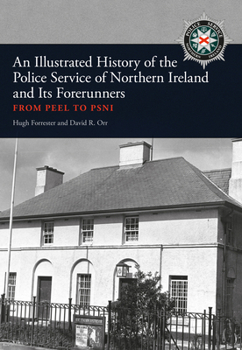An Illustrated History of the Police Service in Northern Ireland and Its Forerunners: From Peel to Psni
Hugh Forrester and David R. Orr cover nearly 200 years of policing in Ireland using images drawn from the archives of the Police Museum in Belfast. Policing in Ireland has its own unique and often troubled history and has been influenced by many of the great changes in Irish history such as armed rebellion, partition and politics. Organised policing in the British Isles began in Ireland in response to the problems of governing an often divided society and evolved in a way distinct from the British model of urban and rural constabularies that developed in the nineteenth century. The requirements of security-based or 'colonial' policing led to the adoption of a continental style gendarmerie with many military aspects, which survived with the RUC until the 1970s. Policing was and does remain divisive, particularly in Northern Ireland with its fraught recent history. Policing in Northern Ireland remains among the toughest and most scrutinised police jobs in the world, but one with a proud history; in the words of former RUC Chief Constable Sir Ronnie Flanagan, 'a golden thread' extends back to its inception in the hands of Sir Robert Peel. The unique combination of the two policing models means Irish policing has had a worldwide influence, providing training to police throughout the British Empire in the nineteenth and twentieth centuries, reforming policing in post-war Germany and Greece and participating in UN police missions to post conflict zones, such as in the Balkans and Iraq.
Format:Paperback
Language:English
ISBN:1445664046
ISBN13:9781445664040
Release Date:September 2017
Publisher:Amberley Publishing
Length:96 Pages
Weight:0.60 lbs.
Dimensions:0.4" x 6.5" x 9.1"
Customer Reviews
0 rating





